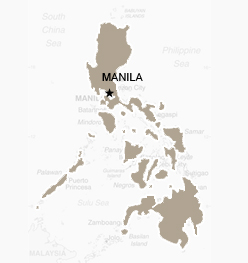

DIGL traerá agua potable a 36 municipalidades

The Department of the Interior and Local Government (DILG) hopes to bring potable water to poor communities in 36 municipalities in the country as part of efforts in addressing the effects of El Nino.
Interior Secretary Ronaldo Puno said that the program, which is under the Millennium Development Goal (MDG) Achievement Fund or MDGF 1919, aims to provide safe and potable drinking water to residents of remote barangays, particularly, the poor communities living in 5th to 6th class municipalities.
Puno said the MDGF program, which has a total funding of $5.375 million, is being implemented by the DILG with the National Economic and Development Authority (NEDA) and the support of the United Nations Development Fund (UNDF) and the United Nations International Children’s Emergency Fund (UNICEF).
Under the program, the DILG’s Office of the Project Development Services (OPDS) of the DILG will provide organizational and technological assistance to the recipient-municipalities; help them develop, organize and sustain their Water and Sanitation (WATSAN) Councils; and empower their Barangay Water and Sanitation (BAWASA) teams. WATSAN council members are composed of key provincial, municipal and barangay officers, while volunteer residents comprise the BAWASA teams.
OPDS statistics show that 17 million Filipinos still do not have access to safe water, while there are still 273 waterless municipalities that have not yet been reached by the President’s Priority Program on Water.
OPDS director Rolyn Zambales said the program will use the services of water experts, engineers, development workers, community organizers and communication specialists to improve the water and sanitation skills of provincial and municipal WATSAN personnel in twelve provinces located in five regions.
“Through the DILG mentoring system, local government units (LGUs) will be capacitated to develop their own customer service guidelines for water services, organizational management, and local resource, strategic and communication plans,” she said.
“With the WATSAN councils and BAWASA teams organized and capacitated, the DILG and its MDGF partners expect significant improvement in accessing clean and potable water by the beneficiary LGUs, and empower them to become implementers of the project,” she said.